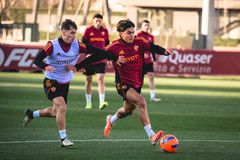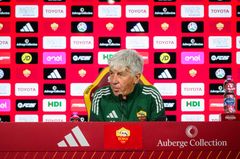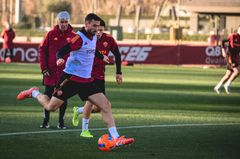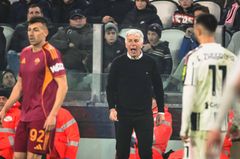


A Roma delegation which included future club president Franco Sensi met Ferenc Puskas and Honved at Roma Termini railway station on the night of 10-11 December 1956.
The Hungarian superstar had previously played in Rome when the Stadio Olimpico was inaugurated but on 12 December 1956 played against Roma for the first time. It would be one of the last matches of the Hungarian super team that formed the backbone of the Aranycsapat (Golden Team) – the Hungary side that won the Olympics in 1952 and were World Cup finalists in 1954.

The match at the Olimpico was taking place between the two legs of Honved’s European Cup tie with Athletic Bilbao. With the return leg being held in Brussels instead of Budapest, Puskas and co. opted not to return home to a country in the throes of a revolution and instead arranged a series of friendlies around the world, before some of the bigger names then found homes at other European clubs.
The Roma side of the 1956-57 season was coached by another famous Hungarian, Gyorgy Sarosi. During the reception at club headquarters in Viale Tiziano the day before the game, Sarosi became emotional when vice-president Sandro Campilli handed him the pennant that he had himself given to Fulvio Bernardini when Roma had hosted Ferencvaros at Campo Testaccio on 16 June 1935.
The match garnered a lot of interest in the capital, with fans hoping to see the likes of Puskas, Sandor Kocsis and Zoltan Czibor. The latter would then sign a contract with Roma but never played in a competitive match for the Giallorossi because FIFA imposed a ban on all the players who didn’t return to Hungary. Bela Guttmann was there too, as the club’s technical director and interpreter at the press conference to present the match.

The Roma players were also for the match. Arcadio Venturi, the captain, shook hands with Ferenc Puskas at club headquarters and did so again the following day at 2:45 before kick-off.

"We played a team that represented everything football was about," Giacomo Losi later wrote in his autobiography. "There was an incredible atmosphere at the Olimpico. The fans were a big help in what will go down in history as one of our greatest pages. Even though it was a friendly, we managed to beat the Honved dream team 3-2.”
The match began with the Hungarian players giving the flowers they had received from Roma players to the crowd. In the 10th minute the match was halted to commemorate the people who had lost their lives in Hungarian Revolution.
Roma took the lead through Gunnar Nordahl but just two minutes later Puskas equalised from the spot after being brought down by Luigi Giuliano.
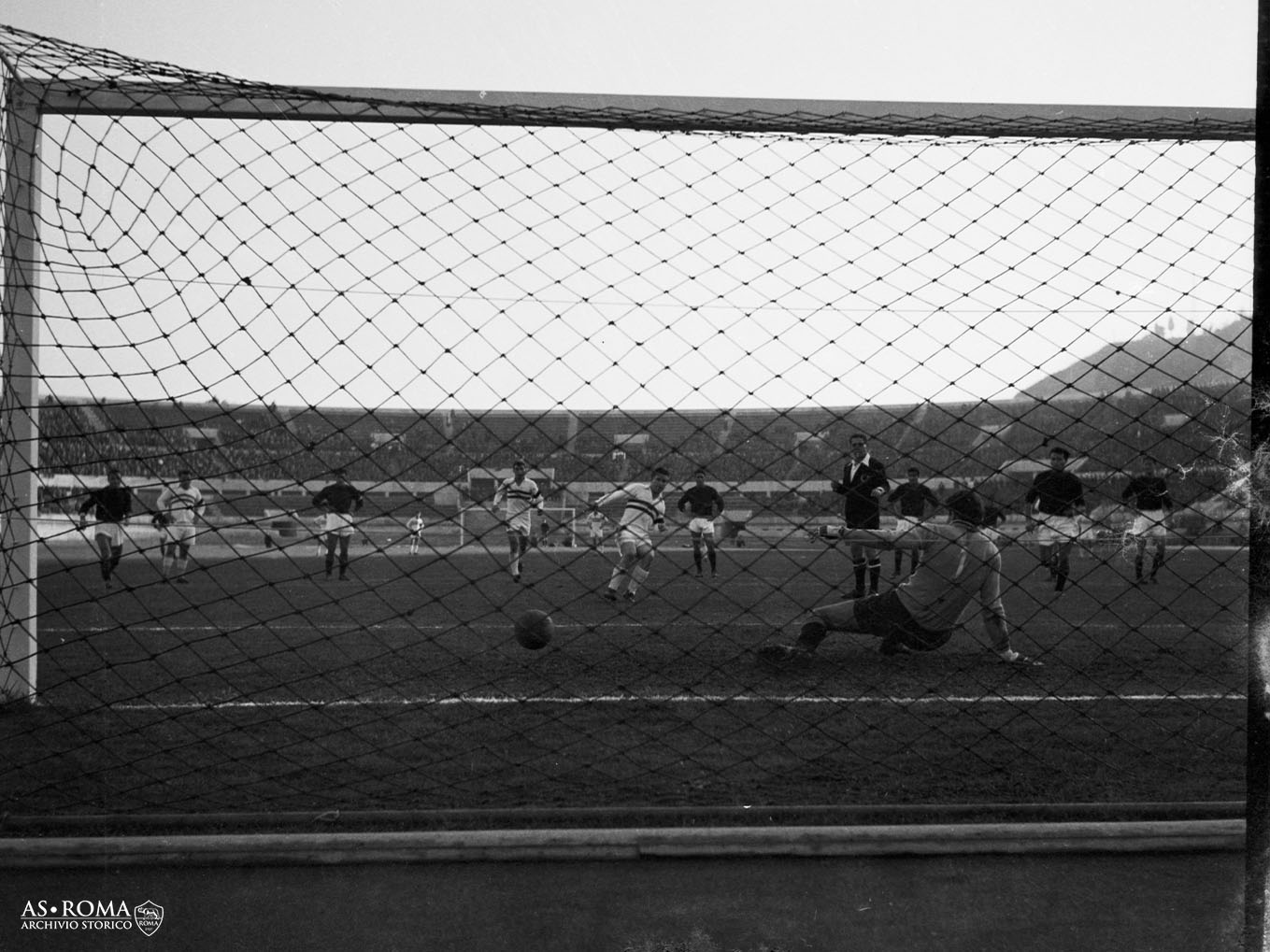
In the 35th minute Nordahl was again the protagonist, finding the run of Alcides Ghiggia who cleverly lobbed the goalkeeper. After the break the Hungarians dominated play for 20 minutes yet were unable to convert their positive performance into a goal. They were made to pay for this in the 70th minute when Arcadio Venturi and Paolo Pestrin combined well to find Ghiggia, whose improvised effort made it 3-1. Honved continued to pour forward, and Zoltan Czibor clawed the scoreline back to 3-2. Yet Luciano Panetti proved to be the hero, denying the Hungarians an equaliser, and Roma held on to win, leaving the field to rapturous applause.
"We deserved a draw," declared Puskas at the end of the game. "We offered more in attack and had a lot of goalscoring chances. I admire the resolve shown by Roma's defenders. As for individuals, I think Ghiggia and Da Costa are their best players."
Ferenc Puskas would once again face Roma on 30 August 1962, this time representing Real Madrid and partnering the legendary Alfredo Di Stefano. Unlike on the other occasion his side were able to find an equaliser to make it 3-3, with the strikes coming from Antonio Angelillo and Francisco Lojacono for Roma and a brace from Amancio for Real, and two own goals apiece.
In this match he also faced former coach Luis Carniglia on the Roma bench, who in 1959 would be sacked by Real Madrid prior to the European Cup final for leaving out Puskas. In 1961 Luis Carniglia went on to win the Fairs Cup for Roma.
Fast-forward to 2023 and Roma are seeking out another European triumph in the stadium bearing the name of Ferenc Puskas.
© 2018-2025 Soccer S.r.l. – EU VAT IT09305501000 - all rights reserved. The AS Roma names, logos and artwork are registered or unregistered trademarks of Soccer S.r.l. All other trademarks may be the property of their respective holders.
 Tickets
Tickets
 Shop
Shop













